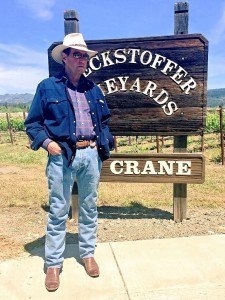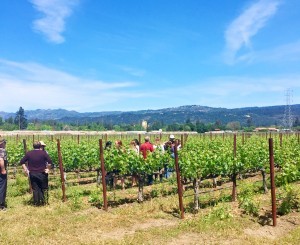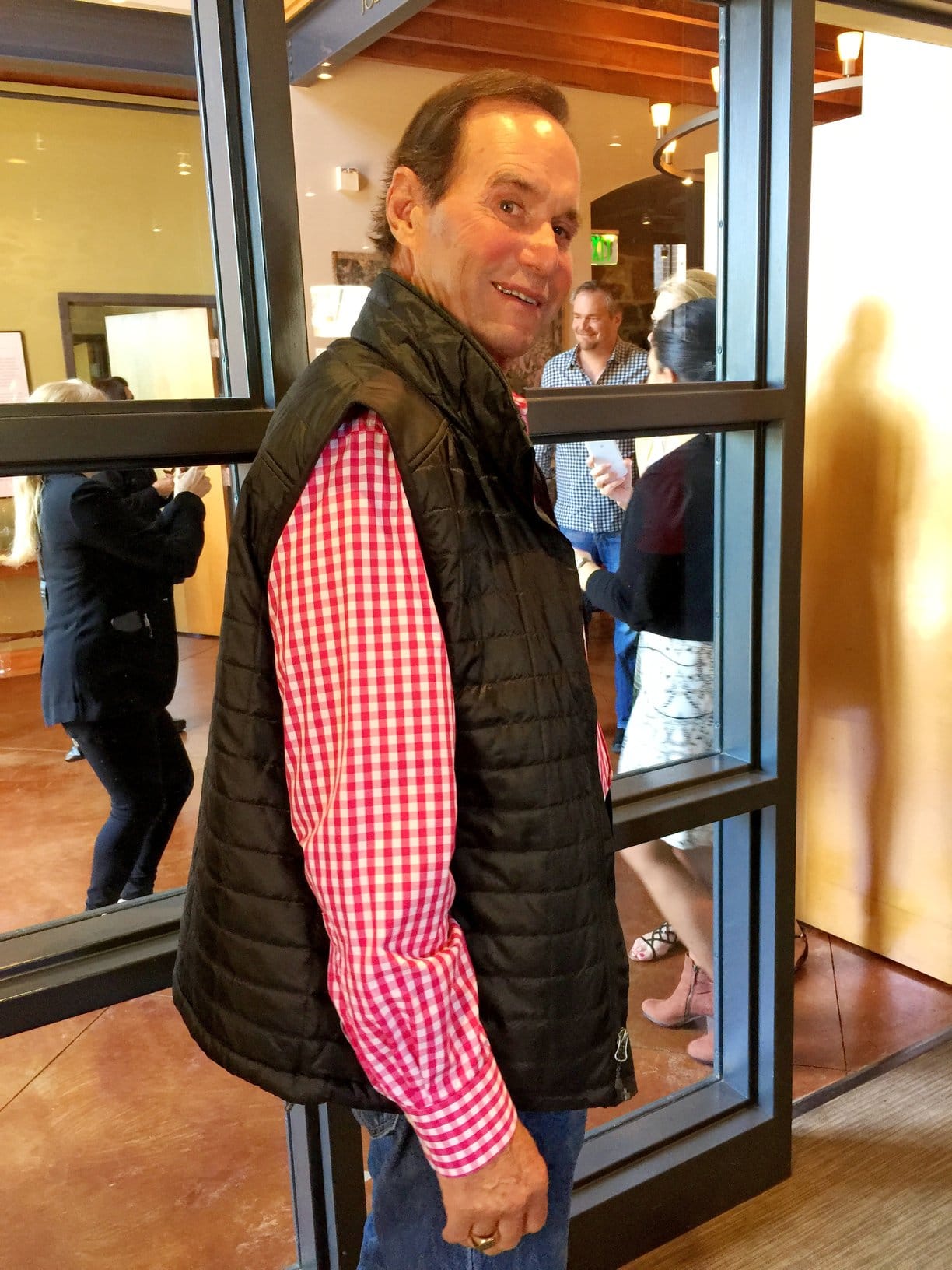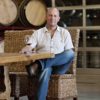Recently, in conjunction with the CIA Sommelier Summit, I had an opportunity to listen to Andy Beckstoffer, the legendary grower. I also tasted several of the vineyard designates from his Dr. Crane Vineyard, one of the most revered sites in Napa Valley.
A Dartmouth graduate, Andy Beckstoffer joined Heublein, Inc. in 1966 as an advisor for premium vineyard purchasing. His acquisitions on the company’s behalf included legendary properties such as Beaulieu and Inglenook. He soon moved to Napa to pursue a career in vineyard management. He subsequently acquired a number of important vineyards for himself, as well as managing dozens of others for his clients.

As the founding director of the Napa Valley Grape Growers Association, he led the effort to pass the “Winery Definition Ordinance,” which requires that 75% of grapes used in Napa wines come from an appellational site. He was also responsible for founding the Rutherford Dust Society, a trade group dedicated to promoting the highest quality standards for the region’s wine and vineyards. Beckstoffer believes that vineyards are a national treasure and ought to be treated with great deal of responsibility. In 2010, Andy joined a rarified group of CIA Hall of Fame inductees, as the first grower to be so honored.
For four decades, Andy Beckstoffer has championed a variety of viticultural causes throughout Northern California, while steadily growing fruit that invariably resulted in world-class wines. He has become an impassioned advocate of correlating the price of grapes to high quality vineyards and meticulous farming.
Beckstoffer’s direct, no nonsense approach is instantly apparent. He feels that production output should be tied to economics. He believes in returning the revenue to the land and that the price per ton of fruit is contingent on the vintage and is controlled by the marketplace. For instance, in a challenging vintage, the price per ton, logically, is lower. Many growers tend to overproduce while many wineries want to underpay. Beckstoffer’s philosophy is to participate in the end product to ensuing value creation. An astute businessperson, he transitioned from commodity trading to “land branding” via vineyard designation.

The list of notable wineries that have the good fortune of acquiring Dr. Crane fruit is impressive. They include such highly sought after brands as Alpha Omega, Arrow and Branch, B Cellars, Myriad, Paul Hobbs and Realm.
Many feel that cutting yields makes for better fruit, but Andy isn’t buying it. Winemakers are always in favor of cutting yields and dropping fruit. However, most growers hold the opposite view. In Beckstoffer’s mind, it is all about balanced vines and not yield. Balanced vines produce balanced wine, so quality of the crop is crucial. That is achieved by careful canopy management, row orientation, and reducing cluster size. The right to control the crop is a negotiation between grower and winery. It hopefully results in preserving the best interests of the vineyard, as well as both parties involved. A good grower doesn’t tell winemakers how to make wines, an astute winemaker doesn’t get too involved with telling the grower how to grow grapes. Beckstoffer believes that “great vineyards produce great wines” and the soil is a much less significant component. To him, fruit is terroir.
The partnership of terroir, farmer and winemaker is the key factor in producing great wines. Thirty years ago, there was no such thing as conscientious farming or environmental awareness. The transition from farmer, to viticulturalist, to land steward made all the difference.
Andy believes that if one great wine is produced, it’s probably a winemaker. If ten great wines materialize, it is most likely a direct extension of the vineyard. The range of wines produced from his vineyards is apparent and exciting; with each winemaker developing his own “house style” that is consistent with their vision. The grower’s job is to deliver high quality grapes that speak of terroir and its unmistakable imprint.
There is also an inherent trust that has to be present between grower and winemaker. With Beckstoffer’s name on the label, he is highly motivated to pick winemakers who merit confidence and honor the fruit. He often doesn’t even taste wines made from his fruit in barrel or from bottle. He is confident that there is a familial relationship between wines, and the vineyard character shines through regardless of stylistic choices made in the cellar.
During the seminar we tasted four wines: Paul Hobbs, who has been buying Dr Crane’s fruit since inception, Realm, Alpha Omega, and Myriad. The wines were very different stylistically, yet each told a powerful story of the site. Minerality, complexity, definition, tannin structure, a peek-a-boo layered texture, and intensity were common denominators. There simply isn’t one right, uniform answer for the optimal expression of his site. The answer is the diversity and styles and signature both of the vineyard and the winemaker.
The 2003 vintage marked the first vineyard designate for Dr. Crane. The grapes have been the source of world-class wines ever since. Beckstoffer’s risk taking, innovation, attention to detail and intelligent farming have paid off. With great risks come great rewards. It’s simple – if you find great terroir, take great care of it.





You must be logged in to post a comment.